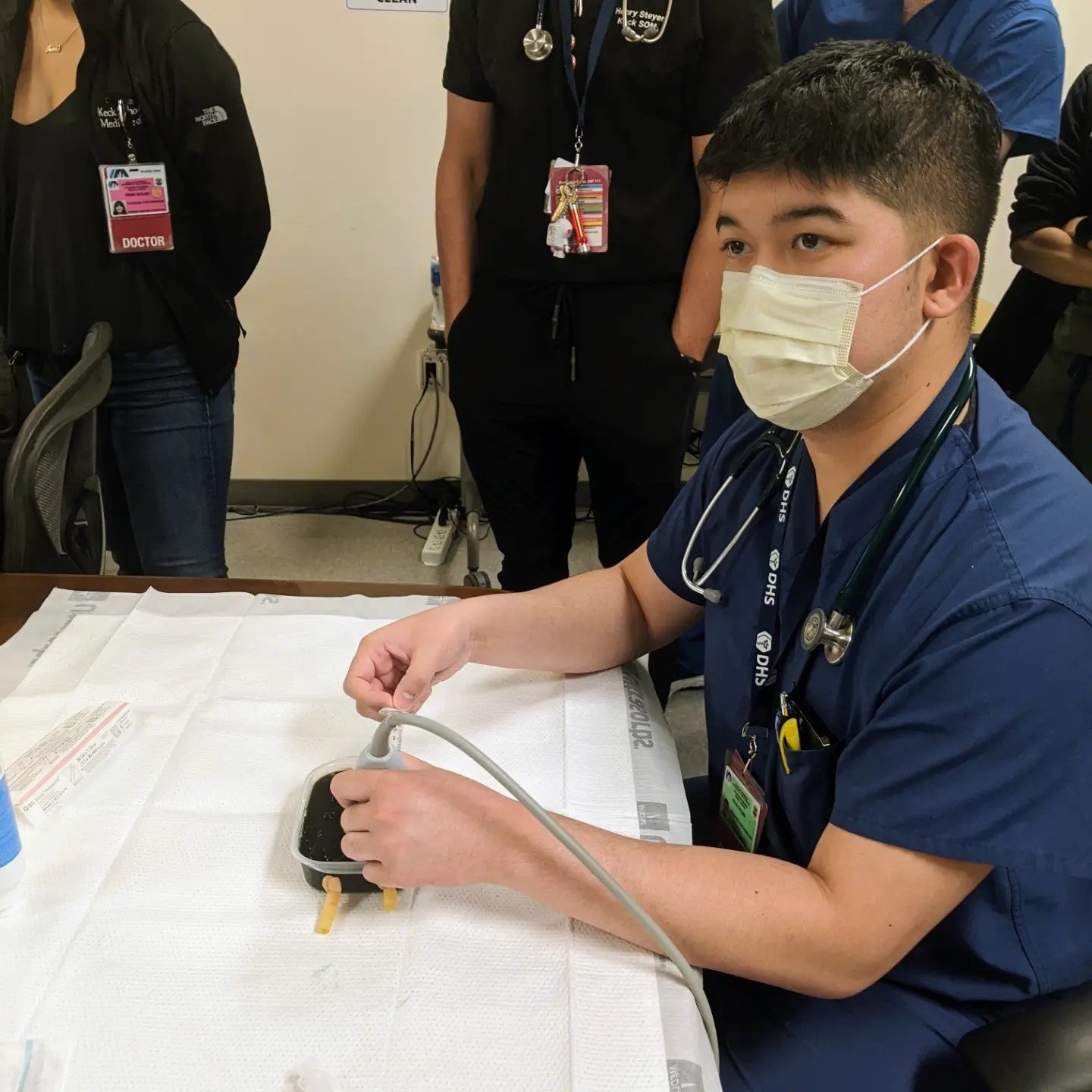CURRICULUM
The wealth of clinical experience at USC is enhanced by a comprehensive and structured curriculum that is second to none.
conferences
Specialty Grand Rounds
A monthly conference hosted in conjunction with specialty divisions in the Department of Medicine that feature renowned guest speakers from all over the world.
Morbidity and mortality
A monthly interdisciplinary conference for the review of cases in which morbidity or mortality has occurred. Pathologic specimens and autopsy results of Internal Medicine patients are reviewed. Residents and faculty engage in a discussion regarding root cause analysis and how to use the data to improve patient care.
resident Grand Rounds
A weekly clinically-based conference where senior residents, under the guidance of a faculty expert, give formal case presentations and comprehensive overview.
clinicopathological case conference (cPC)
A monthly conference whereby a senior resident, under faculty supervision, focuses on working through a broad differential diagnosis after being given limited clinical data to solve an unknown case. Faculty discussants will be present to discuss the workup and thought processes and if relevant, a Pathologist will be invited if biopsies were taken.
Goldstein Morning Report
Goldstein Morning Report is named in honor of our former Vice Chair for Clinical Affairs, Dr. Goldstein. Cases are prepared by junior and senior residents on the General Medicine Service and are moderated by the Associate Program Directors. These sessions are attended by multiple subspecialty faculty members from divisions within the Department of Medicine who expertly guide our residents through the case.
Chief Morning Report
A weekly session for house staff assigned to the General Medicine Service. Residents present cases as "unknowns" from the general medicine service. These sessions are moderated by the Chief Residents and focuses on board-specific material.
Core lectures
intern boot camp
A 2-week lecture series followed by an intensive 1-week long small-group workshops designed to facilitate the transition to intern year with a comprehensive overview of inpatient rotations and primary care continuity clinic, as well as review of basic topics such as EKGs, radiology, antibiotic stewardship, and optimal use of EMR and resources.
Ambulatory care curriculum
An ongoing and repeating case-based series on important topics in ambulatory Internal Medicine. Topics are assigned and presented by residents during the first half-hour of each General Medicine continuity clinic session.
journal club
A monthly faculty-guided session focused on teaching house officers how to interpret and critique study designs and conclusions of landmark journal articles. The articles are presented by residents during a noon session and are facilitated by a specialty faculty discussant.
core curriculum
An ongoing and repeating series of lectures targeted to each resident class delivered weekly in protected afternoon sessions. The lectures cover the breadth of Internal Medicine and are arranged to provide a strong fundamental knowledge base throughout residency.
board review
Preparation for the American Board of Internal Medicine Certifying Examination occurs throughout residency training. The program provides MKSAP to all entering PGY1s and a structured board preparation course begins throughout the PGY3 year. For one week during the year, all senior residents are relieved of clinical duties and participate in a dedicated ABIM Board Review course taught by faculty. This allows senior residents to focus on their studies and prepare efficiently for their upcoming boards.
Simulations
surgical skills & fresh Tissue lab
Residents receive hands-on training in various procedures, including thoracentesis, paracentesis, lumbar puncture and central line insertion, in a state-of-the-art simulation center. Additionally, all residents have the opportunity to practice technical skills on cadavers in the Fresh Tissue Dissection Lab.
ultrasound workshop
Residents participate in a hands-on, small-group, ultrasound course dedicated to basic cardiac, pulmonary, abdominal, and hemodynamic evaluations.
ACLS simulation Center
Residents practice their code and rapid response skills in our ACLS Simulation Center which features fully-stocked patient rooms, crash carts, and models that react in real-time to mimic a true emergency.
Additional programs
HASP
The Healthcare Administrators Scholars Program (HASP) is a two-year educational program for senior residents interesting in obtaining formal training in healthcare administration through didactics, exposure to hospital leadership, mentorship, and hands on experience. The curriculum includes bimonthly didactics from USC/Los Angeles General Medical Center leadership, experts from the Schools of Medicine, Public Policy, Business and Engineering, and leaders from the Los Angeles community.
global health
Senior residents with an interest in global health and alternative healthcare systems can go on month-long elective rotations to a variety of USC-affiliated sites. Each site provides a unique experience to best explore the resident’s interests in healthcare delivery systems and clinical work.















